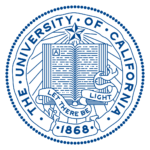About:
Hangping Xu holds a Ph.D. in Chinese Literature from Stanford University with a Ph.D. Minor in Gender and Sexuality Studies. Comparative and interdisciplinary, his research and teaching interests include modern Chinese literature and popular culture, Asian American literature, theories of world literature, film and new media studies, literary theory, comparative rhetoric and aesthetics. His research seeks to queer and crip these fields with a theoretical and thematic investment in global queer and disability studies. Because the fields of queer and disability studies share a fundamental critique of how normalization structures our embodiment, desire, affect, and subjectivity, he uses an intersectional mode of queer-crip critique to approach cultural and literary works produced in transnational context. Similarly, his teaching aims to expand the theoretical and political scope of queer studies by intersecting it with disability and gender studies. His classes invite students to use this queer-crip lens to understand and critique the operation of power under the heteronormative and ableist gaze. His teaching garnered the Centennial Teaching Award from Stanford. Prior to UCSB, he taught at Middlebury College.
He is working on two books: the first project develops a critical genealogy of “Chinese crip figures” in transnational contexts covering the long 20th century: the madman in Lu Xun’s national allegory, the “castrated” male subject in Xiao Hong’s subversive novel, the sublime crip figure of Pavel in revolutionary China, the “supercrip” hero from Taiwan, the autobiographical subject in Shi Tiesheng’s writings, the mute protagonist in Mo Yan’s novella, the sexually impotent brother in Yu Hua’s family saga, the autistic boy in post-Mao cinema, and the disabled poet in the age of internet literature. By investigating disability aesthetics and politics in global Chinese culture, the book contributes to transnational critical disability studies by challenging the liberal myth of the autonomous individual and thus positing an ethic of care that recognizes our finitude, vulnerability, and mutual dependence. His work on disability studies was recognized by the Irving K. Zola Award for Emerging Scholars in Disability Studies (Honorable Mention) in 2020. Deeply situated in global and Sinophone literary studies, his research is transnational in scope and comparative in analysis. His second book situates contemporary Chinese literature in the global system of recognition by examining several prize-winning authors such as Mo Yan, Liu Cixin, Hao Jingfang, Gao Xingjian, Yang Lian, and Yu Xiuhua. His comparative approach inevitably also informs his teaching. As an affiliated faculty member in the Comparative Literature program, he cross-lists his classes in Comparative Literature using the case of Chinese literature to reexamine the histories and theories of world literature.
He has published two guest edited special issues for journals in his fields. Together with Yunte Huang, he co-edited a special issue titled “Translatability and Transmediality: Chinese Poetry in/and the World,” which came out in 2023 from Prism: Theory and Modern Chinese Literature. The introductory essay advances a transmedial approach to the study of Chinese poetry with keen attention paid to questions of translation and world literature. This special issue also includes his article, “Crossing the World to Sleep with You: Yu Xiuhua’s Poetry as Performance and Its Cross-Cultural Translatability.” His second special issue, co-edited with Elise Huerta, came out in 2018 from Chinese Literature Today. This special issue introduces Yu Xiuhua’s poetry to a larger readership beyond China from such perspectives as disability studies, gender studies, and internet culture. He is one of the earliest translators of Yu’s poetry. 12 poems by Yu that he co-translated are included in the special issue. With his ongoing effort to study Chinese and comparative poetics, he has another collaborative project underway with Thomas Mazanec and Xiaorong Li, “The Worst Chinese Poetry : A Critical Anthology,” which features “bad” poems (or “歪诗” in Chinese) and commentary that offers a literary, social and political history to that “badness.”
His publications have appeared in such venues as Modern Chinese Literature and Culture (MCLC), Frontiers of Literary Studies in China, Prism: Theory and Modern Chinese Literature, Critical Multilingualism Studies, Chinese Literature Today, International Comparative Literature, Chinese Poets Since 1949 in Dictionary of Literary Biography, Queer Literature in the Sinosphere, and A Global History of Literature and the Environment (Cambridge University Press). His public-facing work was featured in the UC Television and BBC.
Courses Taught:
CHIN 167: Queer China, Crip China; CHIN 40: Chinese and Global Popular Culture; CHIN/CLIT 82: Modern Chinese Literature and Film; CHIN 176: Chinese Cinema: Nationalism and Globalism; INT 36KX: Disability Aesthetics and Politics in Chinese Literature and Western Music; CHIN 263: World Literature and Modern China; EACS 4B: Modern East Asian Cultures
Professor Xu’s classes are taught in English with course materials being made available in English translation. If prospective students wonder what his classroom looks like, watch a video made by a former student, Christian Aceves, about his learning experience in Professor Xu’s film class. Christian’s video was for a final project where students produce a short video to reflect on their learning. Recognizing the changing notion of literacy, Professor Xu incorporates alternative class assignments alongside academic papers such as podcast conversation, TikTok video, and creative writing.
